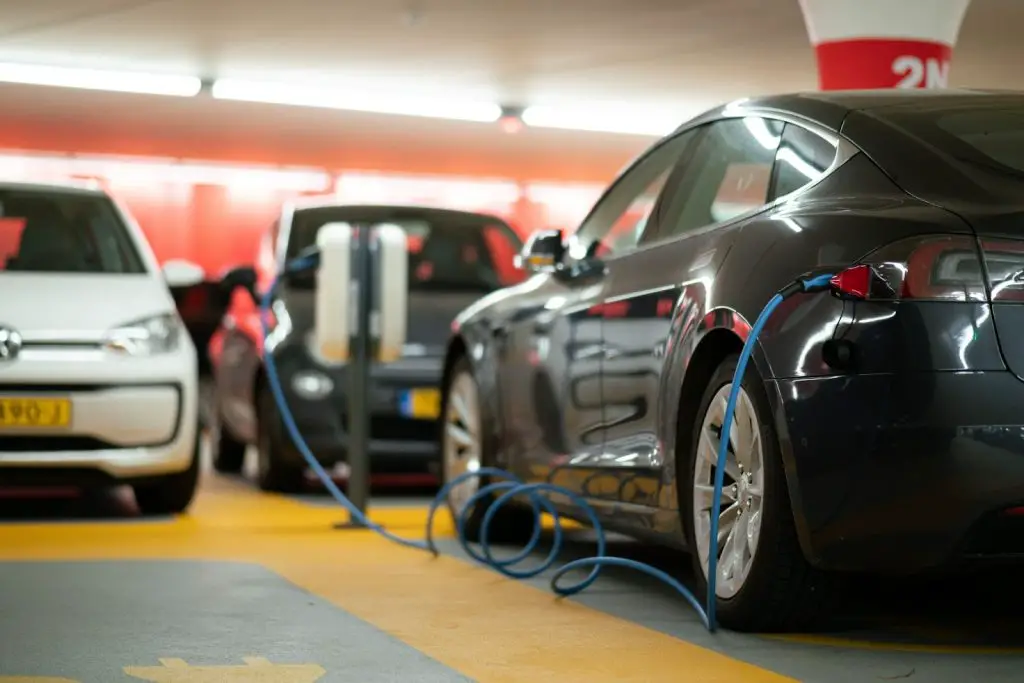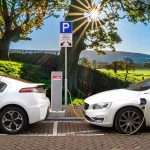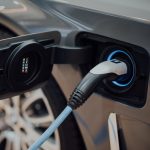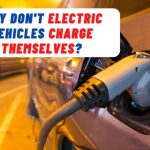Last Updated on November 28, 2022 by

Electric vehicles accelerate faster because electric motors are much simpler than internal combustion engines, resulting in several advantages.
Electric motors can accelerate much faster than internal combustion engines. This is because electric motors generate their torque when turning, while internal combustion engines require time to build up their torque.
Also, they are more efficient than internal combustion engines. This is because electric motors convert all energy input motion, while internal combustion engines waste energy as heat.
Electric car acceleration vs gas
- Electric cars have a higher torque, which means they can accelerate faster than gas cars.
- Electric cars also have a better power-to-weight ratio, meaning they are more efficient and use less energy to accelerate.
- Electric cars can achieve these benefits because they do not have a combustion engine, which takes up a lot of space and weighs a lot.
- Electric cars are also cheaper to operate and maintain than gas cars.
Why can electric cars accelerate so fast?
If you’ve ever driven an electric car and been blown away by its speedy acceleration, there’s a good reason for that!
Electric vehicles, or EVs, have much simpler motors than traditional gasoline cars. Because of this simplicity, they can provide full torque — the force that drives the vehicle forward — from a standstill.
This allows for instant acceleration without the need to rev up the engine. In contrast, internal combustion engines require time to build up power before reaching maximum torque.
Electric car acceleration
Electric cars can achieve 0-60 mph in 5 seconds or less because of their high torque and lack of gears. The electric motor provides a constant flow of power, which means the car can achieve maximum torque from 0 rpm.
Furthermore, electric cars have only one gear, so there is no need to shift gears. This also contributes to the cars’ quick acceleration times.
Why does Tesla accelerate so fast?
It’s all thanks to the battery. While traditional car batteries can often only transfer a limited amount of electricity, Tesla has designed theirs to allow for much better power transfer.
This means that an incredible amount of electricity can flow in and out of the battery, enabling it to deliver high power to the power-hungry motors.
And voila – instant acceleration!
Why do electric cars have instant torque?
Electric cars have tremendous advantages regarding instant torque or the turning force available from a standstill. This is due to the nature of electric motors, which use an electric current to generate force.
Unlike gasoline engines, where fuel must combust to create motion, electric motors can generate force as soon as the current is applied.
Electric cars can accelerate faster and with more power at low speeds, making them ideal for city driving. Instant torque also allows for smoother acceleration without needing gear shifts, providing a smoother and quieter driving experience.
Why are electric cars more powerful than gas?
Electric cars are more powerful than gas cars for a few reasons:
- Gas engines are limited by the number of explosions they can create per minute, while electric motors can create as many revolutions as desired.
- Electric motors generate more torque than gas engines.
- Electric motors are smaller and lighter than gas engines, meaning they can be placed in smaller, lighter vehicles.
How do electric cars accelerate
Electric cars use a motor, rather than an internal combustion engine, to power their movement. The motor is powered by a DC battery, which is converted to AC by an inverter.
When the accelerator pedal is pressed, it sends a signal to the controller, which adjusts the frequency of the AC power going to the motor. This causes the motor to spin, turning the wheels through a cog system.
Electric cars have instant torque, allowing for smooth and speedy acceleration, as traditional vehicles do, without losing power at higher speeds. This also allows for better control and handling while driving.
Can electric cars go faster than gas cars?
EVs can often accelerate quicker, reaching higher speeds in a shorter time, but their top speed is usually lower than gasoline cars. So while an EV can go from 0 to 60 mph faster, its maximum speed may not compete with that of a traditional gas car.
However, this does not make EVs any less capable – many drivers do not regularly reach the highest speeds available in gas cars.
Why are electric cars better?
Electric cars have numerous environmental benefits compared to traditional vehicles. Not only do they produce zero tailpipe emissions, but the process of generating electricity for charging also emits less carbon dioxide than burning gasoline.
Electric cars can also use renewable energy sources such as solar or wind power, making them even more environmentally friendly.
Practically, electric cars require less maintenance and have lower operating costs due to not needing gasoline or oil changes.
Why do electric cars have high horsepower?
Unlike traditional gas-powered cars, EVs rely on an electric motor rather than an internal combustion engine.
This means that they have fewer moving parts, making them more efficient and allowing them to generate higher levels of horsepower. Electric motors’ instant torque provides a smoother and more responsive driving experience.
Why do electric cars have so much horsepower?
Many consumers are surprised to learn that electric vehicles (EVs) can have more horsepower than traditional gasoline cars. This may seem counterintuitive, as EVs rely on battery power rather than fuel combustion.
However, the key factor at play here is efficiency. Electric motors generate significantly more torque, or rotating force, at low speeds than internal combustion engines. This allows EVs to accelerate quickly and smoothly, even at low speeds.
EVs have fewer moving parts, leading to less friction and allowing them to use a higher percentage of their horsepower.
Do electric cars have gears?
The answer is yes, they do. However, how these gears operate differs from traditional, internal combustion engine-powered cars.
Electric vehicle gearboxes serve a slightly different function and typically only have one or two gears. These gearboxes help optimize the car’s power output and efficiency and also enable the car to go in reverse.
So while electric cars do have gearboxes, their function and purpose differ from traditional gas-powered vehicles.
How much horsepower do electric cars have?
Many electric cars have impressive horsepower numbers. The Lotus Evija, for example, has a maximum motor power output of 1500 kW, which translates to approximately 2011 horsepower.
Of course, it’s not just about raw horsepower – electric cars also offer instantaneous torque and a smoother driving experience overall. So while they may not boast comparable numbers on paper, they more than makeup for it with their superior performance on the road.
FAQ relating to Why do electric vehicles accelerate faster?
How long do electric car batteries last?
An electric car battery’s longevity largely depends on its type and quality, as well as how it is used and maintained.
Generally, lithium-ion batteries used in electric vehicles have a lifespan of 15 to 20 years. However, some batteries have been known to last longer or need replacement sooner, depending on frequent extreme temperature exposure and high mileage.
The good news is that even when a battery eventually reaches the end of its useful life, it can still be recycled in other technologies, such as home energy storage systems.
What is the average cost of a battery for an electric car?
A battery for an electric car can range from $2,000 to $10,000 per kWh. This price tag is in line with the cost of other high-capacity batteries, such as those used in grid storage or data centers.
While the cost of batteries continues to decline over time, it’s important to note that electric vehicles also decline with increased production.
How much is a new set of batteries for an electric car?
The cost of a new set of batteries for an electric car can vary widely, depending on the make and model of the car. Generally speaking, you can expect to pay between $2,000 and $10,000 for a new set of batteries. Some luxury models may cost even more.
If your battery is damaged or needs replacement, you can get a discount from the manufacturer or dealer.
What happens if my electric car runs out of battery?
If your electric car runs out of battery, you may be in for a rough ride. If the battery is near zero, the system will bombard you with increasingly aggressive warnings to get to a charging station immediately.
If you continue to drive and the battery falls below a certain level, the car will abruptly shut down, leaving you stranded on the side of the road. For this not to happen, it’s important to keep an eye on your battery level and plan your trips accordingly.
Key Takeaways
- Electric vehicles tend to have a higher power-to-weight ratio than gasoline-powered cars.
- Electric motors also produce torque from 0 RPM, which makes them great for acceleration.
- Electric motors are more efficient than gasoline engines and can therefore travel further on a single charge.
- Why Electric Vehicles Are Not Popular - January 29, 2023
- How Long Do Tesla Batteries Last Per Day? Battery Facts - January 25, 2023
- Do Electric Vehicles Have Air Conditioning? - December 21, 2022










